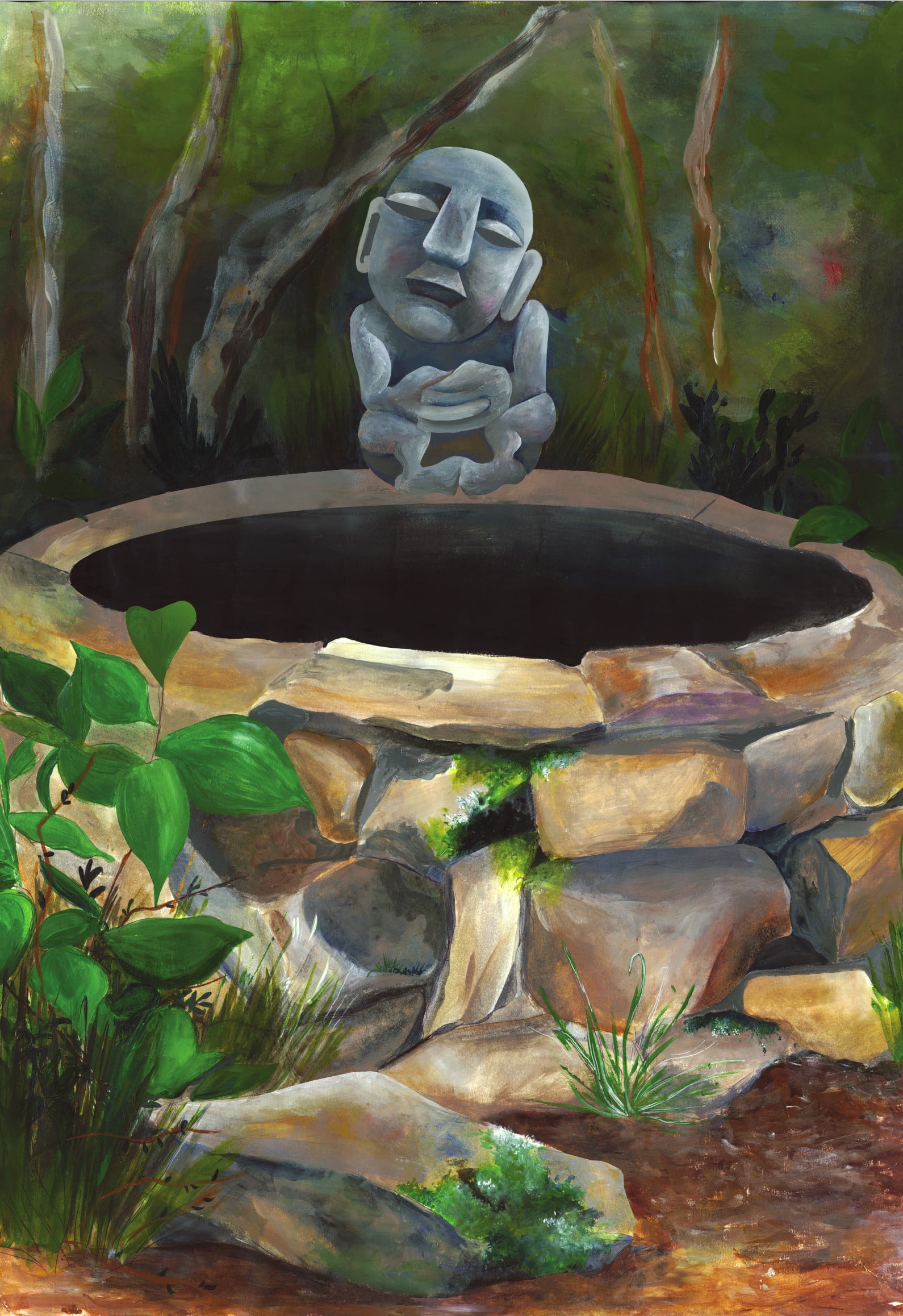

In Retumbana Velha, a small valley in rural Portugal, stands an ancient stone well. There are many such wells and water sources dotted around this area and indeed dotted across the world. Before the management and distribution of water was centralised, wells were a community meeting place. People would gather and draw their water, chat and perform rituals. Very few are still in use today and many are dry.
Across cultures, wells are more than just sources of water; they are symbols of life, mystery, and transformation. They have been places of gathering, healing, and ritual. Many traditions believe that well water carries divine energy, and for centuries, pilgrims have visited sacred wells to drink, wash, and absorb their purity.
The act of making a wish—of offering something in exchange for luck or blessing—is an ancient practice. Today, we toss in coins, but in the past, people gave pebbles, shells, nails, or glass beads. Each offering, each small sacrifice, was a hope cast into the unknown.
Yet wells also hold a deeper, more haunting presence. They represent the duality of renewal and entrapment—a hidden reservoir of potential, but one that can only be accessed by descending into the depths. To draw from a well is to reach into the unseen, to stir the silt of buried emotions and unspoken fears. For this reason, we often treat wells with caution, even fear. In folklore and horror stories, they are gateways to other realms, dwelling places of restless or malcontented spirits—things that we have left to lie for too long, who resurface and must be faced anew in the light.
And so, I introduce The Well Keeper—the spirit who guards the wells. He hears the whispered wishes and the silent prayers. He holds the things that we cast into the dark, standing at the threshold between what is given and what is lost.
Acrylic on Paper, Digitally Manipulated
AI Website Generator